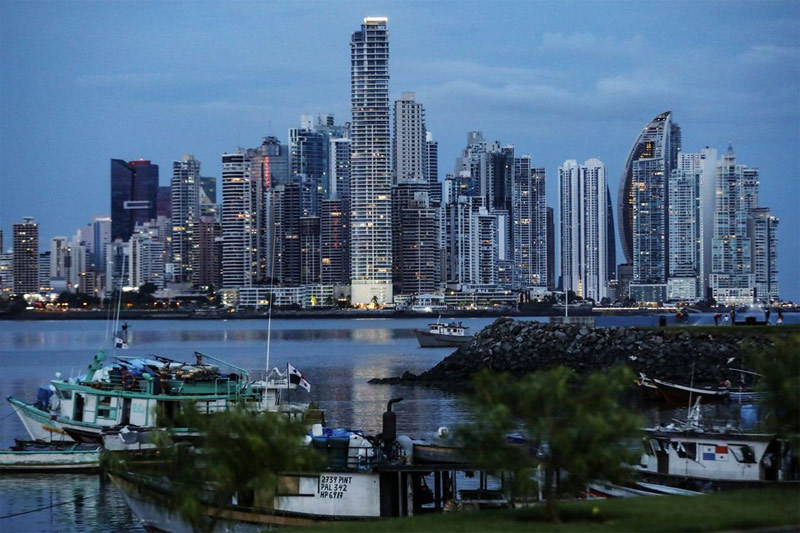The truth about shell companies that help the rich hide money in the 'tax haven' Panama
Following the Paradise Papers and Panama Papers, the Pandora Papers, consisting of nearly 12 million documents, continue to expose more secrets about the mysterious world of offshore companies and trusts.
These entities are set up in “tax havens” or “secret jurisdictions” and are used by many of the world’s wealthy and powerful individuals and corporations to move and hide money.
So what are these offshore structures? How do they work? Are they legal? And why don't regular people set up their finances this way?
|
| Panama is considered a 'tax haven'. Photo: Reuters |
ABC News quoted experts explaining some related issues:
What are "offshore structures"?
They are generally "front" companies or trusts, meaning they do not employ any employees and do not conduct any business themselves. They act as a shell around the activities and assets of the real person or corporation.
Typically, the registered office will be an accounting or law firm in one of the secrecy jurisdictions, and that firm provides directors or trustees as a front. While they are not involved in the day-to-day operations of the business, they are still the registered owners of the valuable assets, and transactions still “flow” through them.
These entities are often created to minimize tax bills, according to Jason Ward of the Center for International Corporate Tax Accountability and Research (CICTAR).
"An artificial structure designed totax avoidancewhen making a profit. There are many different ways to do that, but (they) are simply a way to move money offshore to a jurisdiction that, for whatever reason, is not taxed or is taxed very lightly."
Just to evade taxes?
The advantage is that income and assets can be “parked” in low- or no-tax jurisdictions. However, that is not the only reason they are used by many wealthy individuals and companies.
Another big factor is secrecy.
Secrecy is key to minimizing your tax bill. If the authorities know your assets or income, it usually doesn't matter where they are located, they'll still send you a tax bill. If the tax authorities don't know, they can't tax you.
Mr. Ward also pointed to several other reasons beyond taxes.
“Money laundering, criminal activities, corruption and bribery are also reasons why many individuals and corporations use secret jurisdictions,” he explained. “Or if you are a high-ranking politician, a king or a princess, you don’t want people to know where you really keep your money and how much money you have.”
Additionally, some wealthy individuals and companies use offshore structures to hide their assets from creditors and even their own family members. For example, a celebrity might purchase a home through an offshore company or trust, making it difficult for others to find out where they live.
What are the potential problems?
For the reasons outlined above, offshore shell companies or the jurisdictions that host them are widely criticized. Whether legitimate or not, they are used to minimize liability to tax authorities and those who may be the true owners of those assets.
According to Serena Lillywhite of Transparency International Australia, secretive jurisdictions facilitate a wide range of illegal and unethical practices. “[They help people] avoid or minimize tax that would otherwise be payable in the country where a company conducts business,” she says. [They] conceal the identities of the ultimate beneficiaries, which can include politically fallen individuals, rogue actors, and those involved in crime and corruption.
“These structures provide a haven for the ultimate beneficial owners, making it harder for citizens to hold power,” said Lillywhite. “[They] can be used to launder dirty money, often as part of a network of opaque business structures intended to maintain secrecy, or to move money, which may be the proceeds of crime and corruption, through offshore companies without raising suspicion.”
It’s difficult – and expensive – for creditors to find out what assets their debtors have, let alone get their cash. For example, if you run a debt-ridden business and know you can’t pay back your debts, you might transfer some of your assets to an offshore entity. When creditors come knocking, they’ll have little to no way of getting anything, and if they want to know what you have, they’ll have to go through a difficult and expensive search.
Are these entities legal?
Usually yes, and sometimes no. The answer depends on what structure it is, how it is set up, its intended use, and the rules of the jurisdiction in which the beneficiary resides or operates.
“I would say a lot of it is probably technically legal,” Mr. Ward commented. “But, if you’re setting up these structures and moving money on a fraudulent basis, there’s a lot of gray area there. Plus, it may be legal but many people still see it as unethical and illegal.”


